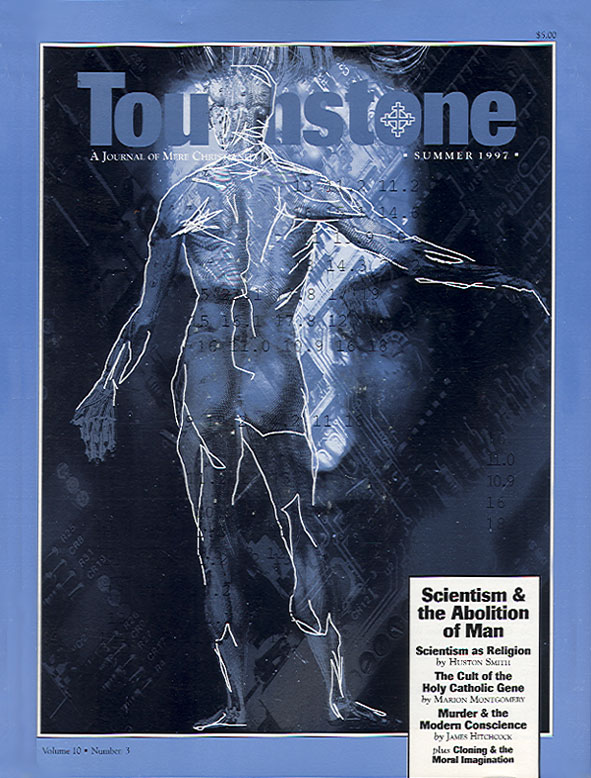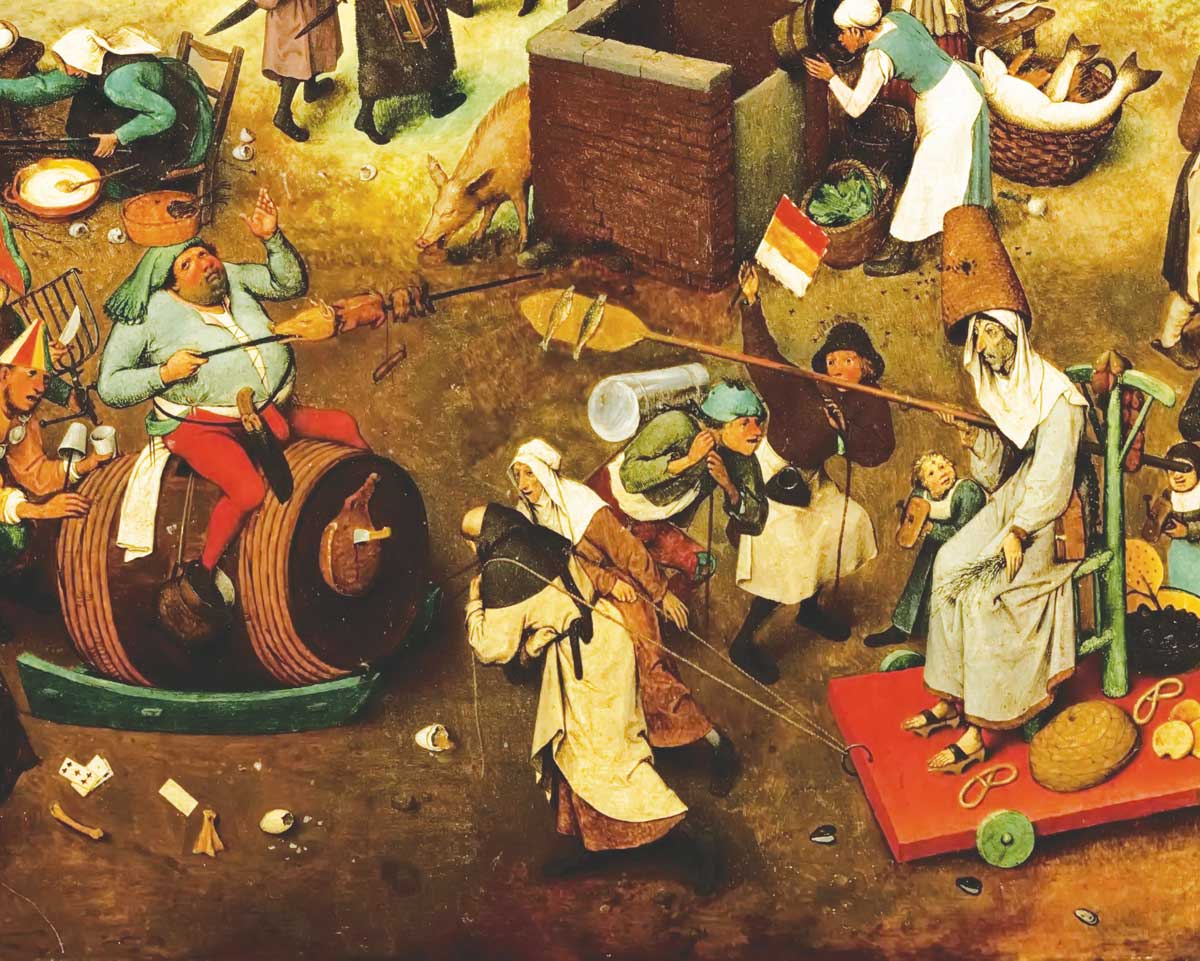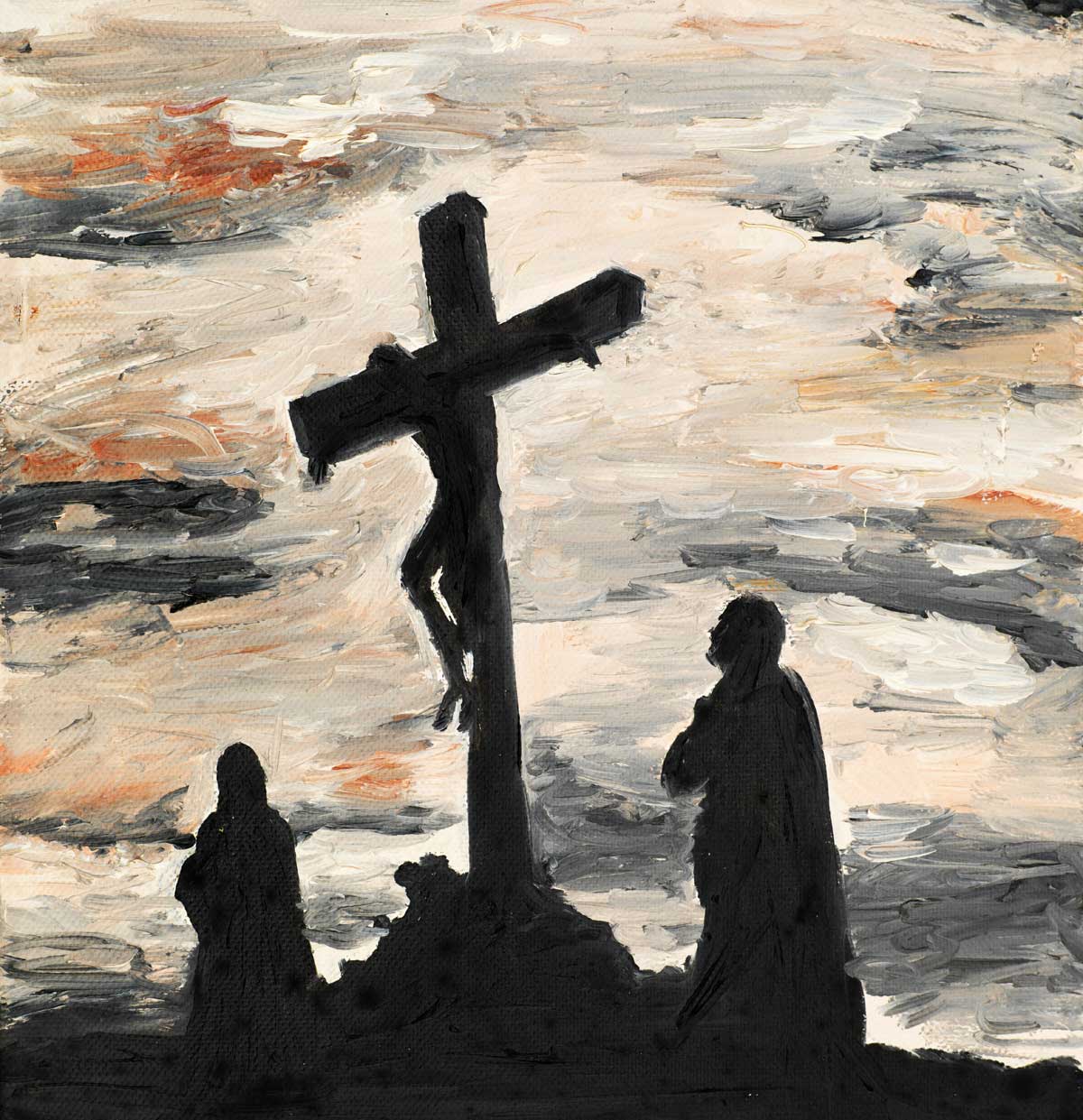Our Agenda, Our Weakness
Here at Touchstone we have deliberately chosen to forego a detailed theological and ecclesiological agenda. This admittedly is a source of frustration to some, but it is a necessary frustration, for we dare not allow our agenda to hamper or derail a process of reconciliation that is (we believe) a work of the Holy Spirit.
We Christians are not the owners of the Church, and neither are the pope nor the ecumenical patriarch nor their various Protestant (non-)equivalents. Those of us at Touchstone—and all who share a desire for unity in truth—are the unworthy servants of the Lord, who could, like the apostles, easily become stumbling blocks to our Lord’s purposes.
Who of us, indeed, can claim to have escaped the blindness and hardness of heart that for so many years plagued even our Lord’s chosen disciples? There is only one appropriate starting place for our efforts. That is with deep and genuine personal repentance. And this to some extent excludes the tendency toward a self-assured agenda that has been so typical of “traditional” Christians. Removing beams from one’s own eyes is an appropriate exercise—and perhaps a lengthy one as well—to prepare one to be charitable to his brothers.
But the resulting ecclesiastical modesty should not be confused with a vague sentimentalism. Our desire must go much deeper than a mere longing for Christians to put their “silly” differences aside and simply get along with each other. Alongside repentance there must be a deeply held conviction that things in the Church are not as they should be. Do we believe that the divisions in the Church grieve our Lord? How deep are the wounds? Have we become insensitive to the pain?
None of the churches is the picture of health and stability, and very often we ignore our own church’s weaknesses by enumerating others’ problems. But regardless of how deep one’s conviction may be that his own church is theologically correct, there should be an equally strong conviction that there are those beyond one’s own doors who love our Lord and are loved by him, misinformed though they may be (in our perceptions). We cannot ignore them. They are our estranged relations. Though they may have separated from us for good reasons or bad, if we refuse to include them in our concerns we are cutting ourselves off from our own. This does not seem to be pleasing to our Lord.
Even without a well-developed agenda, however, there is much work that can be done. We can begin by removing the obvious barriers that are so often encountered:
• We must refuse to trivialize the differences that have split Christians from each other. The details of the split between the Russian Orthodox Church and the Old Believers, for example, may seem, to our eyes, to be based on an obsession with certain fine points that are no longer of interest to us; but we do not stand in the shoes of the Christians today who have suffered so greatly at the hands of their own supposed co-religionists. We must recognize the tremendous pain that has been caused on both sides in any given conflict, and the many cultural, emotional, historical, as well as theological factors that have entered in.
• We must refuse to bear false witness against other Christians. We must refuse to accept the straw men, the misleading characterizations—either positive or negative—that are bandied about with polemical intent.
• We must accept as our first priority the need to live a holy life. The Liturgy of St. John Chrysostom, for example, repeatedly requests a “life of peace and repentance” from God’s mercy, and if more Christians were actively seeking this, the cause of “unity in truth” would make more substantial progress.
• We must seek to see the state of divided Christendom with a sober realism, and at the same time be prepared to admit the limits of our own wisdom. We know that there is One who walks among the twentieth-century “lampstands.” His eyes, like blazing fire, accurately weigh and assess the state of each communion. We who are more limited in our knowledge and fallible in our judgment must content ourselves with a more modest assessment, but let it be as clear as it can be, and, if it please God, may it rise on occasion to the level of prophetic insight.
• We must be willing to suffer. Perhaps it is not coincidental that “Blessed are the peacemakers” is followed by “Blessed are those who are persecuted.” Those who long for the unity of the Church must be willing to be misunderstood—especially by members of their own church—to be falsely accused, and to serve diligently but receive little gratitude for their efforts.
Touchstone refuses to take shortcuts along the road to church unity. We go on, “our own great weakness feeling,” as the hymn says, grieved by the disunity that surely grieves our Lord, and unable and unwilling to pretend that our hopes and dreams will be fulfilled short of a full and complete reunion in truth. In this, the Cross of our Lord towers over us all. For it is surely there, at the foot of the Cross, that our ecumenical efforts must begin: a place where we see clearly that the work of saving and reuniting the Church is ultimately God’s and not ours.
At the August 1996 “In the World” Conference, sponsored by Touchstone, Fr. Patrick Henry Reardon in his presentation, “Safeguarding the Deposit,” concluded with these words:
A major problem today is that Christians are not sufficiently finding their places at the Cross. This has to do with prayer, and with fasting—that is to say, with lifestyle. There is no way of keeping the deposit of the faith without these. It has to be a question of lived experience, not just of hanging on to certain ideas. Being steeped in the mystery of the Cross is a quiet discipline of many years. . . . [Safeguarding] that deposit requires an absolute commitment of our lives to the mystery of the Cross. To safeguard the deposit necessarily means not belonging to the world, and not belonging to this world is a description of the Cross. Amen.
—John Thompson, for the Editors
John Thompson is a librarian and professor at Waynesburg University, Waynesburg, Pennsylvania
subscription options
Order
Print/Online Subscription

Get six issues (one year) of Touchstone PLUS full online access including pdf downloads for only $39.95. That's only $3.34 per month!
Order
Online Only
Subscription

Get a one-year full-access subscription to the Touchstone online archives for only $19.95. That's only $1.66 per month!
bulk subscriptions
Order Touchstone subscriptions in bulk and save $10 per sub! Each subscription includes 6 issues of Touchstone plus full online access to touchstonemag.com—including archives, videos, and pdf downloads of recent issues for only $29.95 each! Great for churches or study groups.
Transactions will be processed on a secure server.
more from the online archives
calling all readers
Please Donate
"There are magazines worth reading but few worth saving . . . Touchstone is just such a magazine."
—Alice von Hildebrand
"Here we do not concede one square millimeter of territory to falsehood, folly, contemporary sentimentality, or fashion. We speak the truth, and let God be our judge. . . . Touchstone is the one committedly Christian conservative journal."
—Anthony Esolen, Touchstone senior editor









